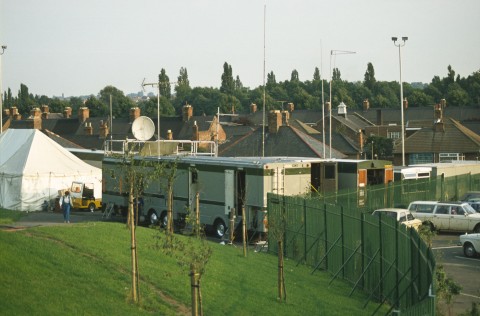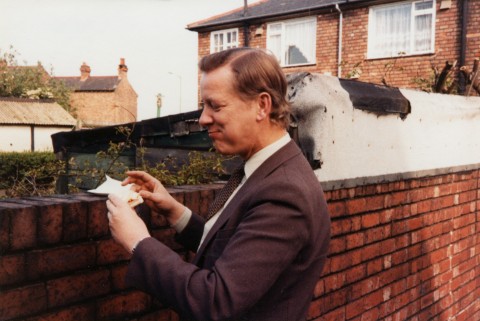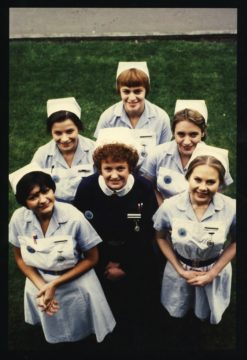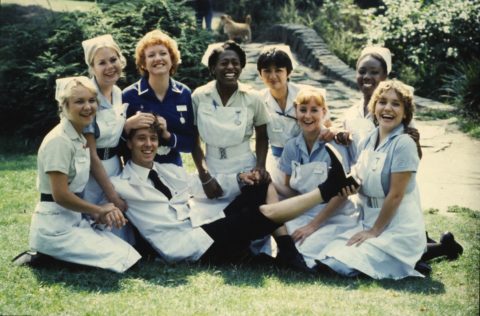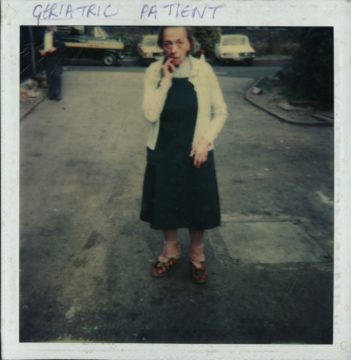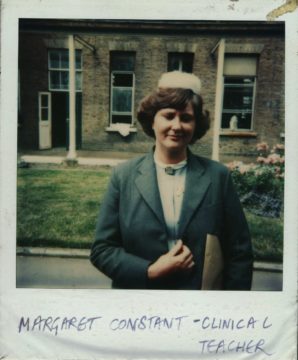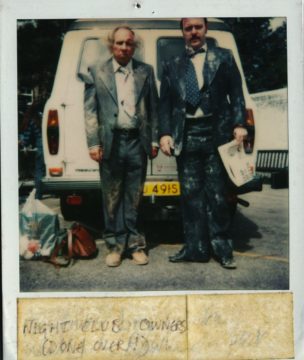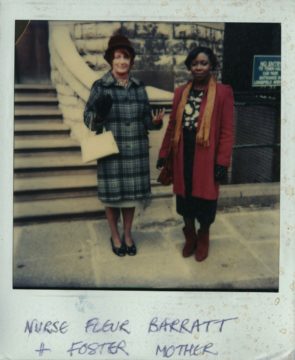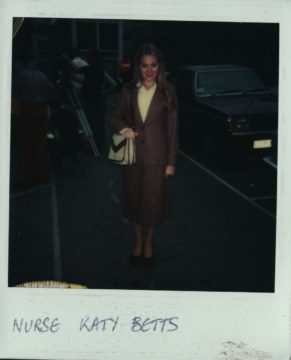I joined Pebble Mill in 1974 and was a staff Studio and O.B. engineer until we lost the O.B. fleet in 1992, after which I became a freelance engineer. I did do some contract work at the Mill afterwards until 1997, then I became a full freelancer working for Sky, BBC and ITV via various O.B. facilities companies. I retired this year, but if offered an O.B. which appeals to me, I guess I’ll take up the offer! Regional Engineers, as we were known were expected to work in Telecine and Videotape as well and we were trained to work in Communications (‘Comms Centre’ and Radio Links) if required.
During my first few years at the Mill, Studio A was usually working 6 days a week, with 2 sets of 2 day dramas and 2 days of Pebble Mill at One; during the latter there would be a complete scenery and lighting reset for the following production. I worked on the last series of Poldark, various series of All Creatures Great and Small, Angels, Juliet Bravo and countless Plays for Today. Amongst memorable Studio A productions were a series of live dramas for BBC 2 around 1980. We were using the very first colour cameras, EMI 2001s, and the first incarnation of the studio technical facilities. Despite the age of the equipment, all the plays went out without a hitch, and much alcohol was consumed afterwards as we all came down from the adrenaline ‘high’. A great breakthrough came with the inclusion of Light Entertainment programmes in the late ’70s, a welcome change from a constant diet of drama productions. I thoroughly enjoyed the specials with Showaddywaddy, Elky Brookes and Don McLean and have very fond memories of doing Basil Brush shows on Saturdays. Oh, and I nearly forgot Saturday Night at the Mill! In the 80s, drama became a single camera operation, usually on location rather than in the studio. However, the studio seemed to be just as busy doing many other productions like Telly Addicts, The Adventure Game and Young Scientist of the Year. When London decided to kill off Pebble Mill at One, there were many spin off daytime programmes involving D.I.Y., fashion (The Clothes Show), and cooking, mainly done using Gallery C. A house was built in the back quadrangle for some productions! Studio B shouldn’t be remembered as only doing Midlands Today – I worked regularly in there on Farming Today and various programmes for Asian immigrants. There were often innovative ideas for the regional opt-out programmes, some of which went on to be networked – Top Gear being a good example. We even did a rock music show in there, and on one occasion, the sound travelled through the building and was picked up on the microphones in Studio A which was doing a Play For Today at the time.
I worked briefly with CMCR9 during my first ever O.B. stint in 1980, but it was moved to Manchester to become ‘North 3’ during that time, and we had CMCR10 for a few months until our new scanner, CM1 arrived. An O.B. stint then was very varied in programme type. It would include football, rugby, swimming, cycling, snooker, horse racing, cricket, party political conferences, inserts to Pebble Mill at One or to drama productions. After I went freelance, all I seemed to do was football!
I have so many lovely memories of my life at Pebble Mill, and it’s great to see that everyone else remembers it fondly and that we are all keeping in touch. I remember that when I left in 1992 I felt like I had suffered a divorce and a bereavement at the same time and it took a long time for me to come to terms with the fact that I no longer worked there. I must say that I don’t feel that way about retiring now as the industry has changed so much and has completely different principles from those with which I’m familiar. I completely agree with the idea that we saw the Golden Age of Television in the 70s and 80s!
John Kimberley
